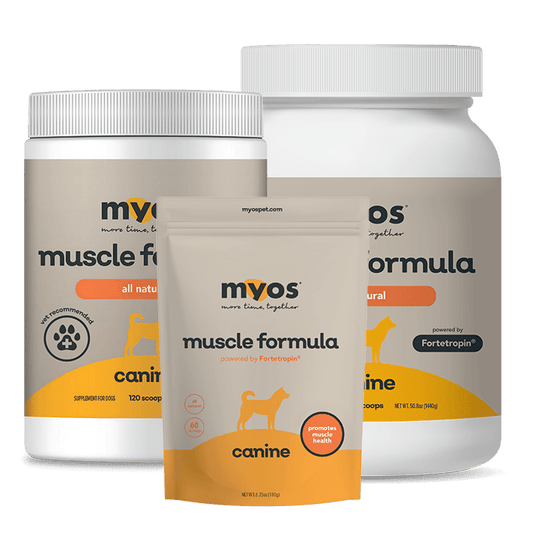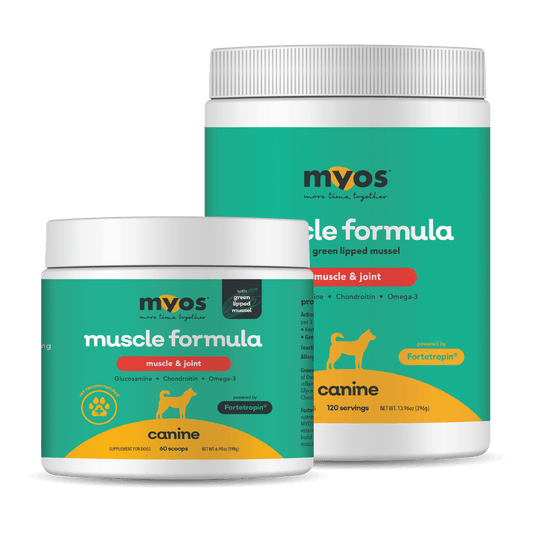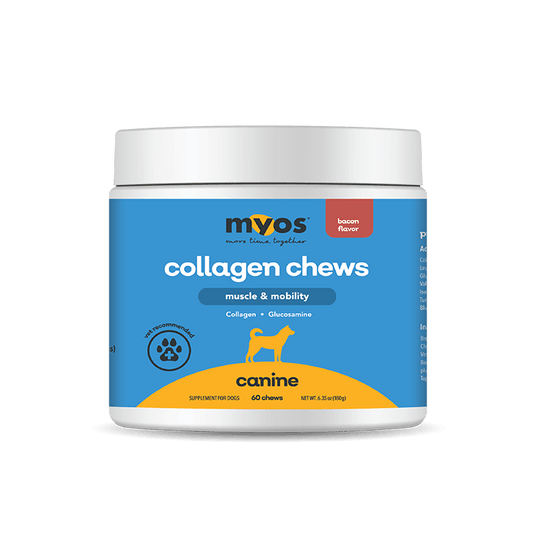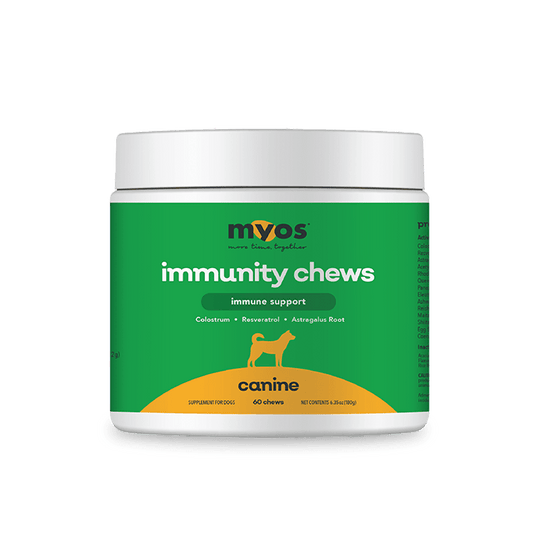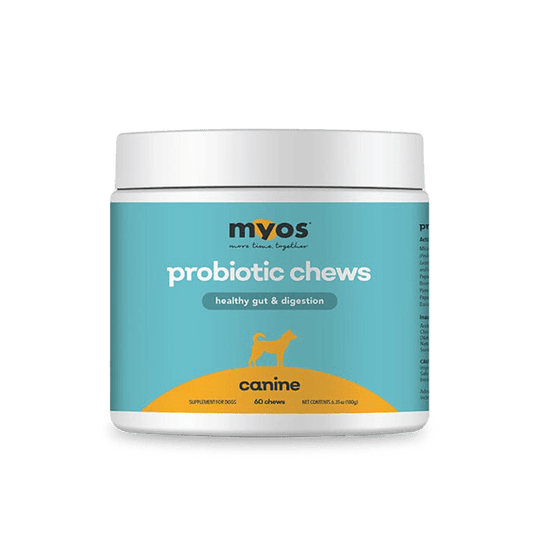Just as man loses muscle mass as he ages, so does man’s best friend. Fortunately, it is possible to significantly slow age-related muscle loss by providing your dog with food that is based on optimal nutrition. Below we discuss some nutrients that you may want to consider increasing or adding to your dog’s diet after talking with your veterinarian.
1. Protein – In a 2012 review article, Dr. Lisa Freeman, Tufts University School of Veterinary Medicine [1] discussed the importance of discussing your senior dog’s diet with your veterinarian as the discussion may shed light on factors that are contributing to muscle loss. One of these factors is low dietary protein. If a dog does not receive an adequate amount of protein from their diet, they may not be able to maintain their existing muscle mass as biological processes that contribute to muscle protein breakdown tend to increase in activity as dogs become older. While it is important for dogs to receive the AAFCO minimum level of dietary protein (5.1 g/100 kcal), higher levels of protein may be optimal according to Dr. Freeman. Special consideration needs to be given for dogs with specific conditions such as chronic kidney disease (CKD) as these dogs may not be able to tolerate diets that are high in protein. Commercial pet foods can vary significantly with respect to protein content. Switching from one brand of dog food to another brand can inadvertently lead to muscle loss as pet food labels provide limited information. Hence, it is important to discuss diet and protein intake with your veterinarian.
2. Omega-3 Fatty Acids – Inflammation is one of the biological processes that contributes to age-related muscle loss in both dogs and humans. Dogs that become very ill due to a serious chronic disease such as congestive heart failure (CHF), chronic kidney disease (CKD) or cancer often develop a serious form of muscle loss known as cachexia. In studies involving CHF-related cachexia, dogs that received omega-3 fatty acid supplementation did experience a decrease in inflammatory activity and a decrease in muscle loss [2,3]. The most common source of omega-3 fatty acids is fish oil but there are other sources as well such as flax and algae. Quality and source of omega-3 fatty acid supplement is an important consideration, particularly due to concerns about mercury in fish oil. Your veterinarian may be able to advise you on selecting the right omega-3 fatty acid supplement.
3. MYOS Canine Muscle Formula – MYOS Canine Muscle Formula is a new, revolutionary nutrition product for dogs that is comprised of 100% fertilized, egg yolk powder. The product is different from other egg yolk powder products on the market in that it is made from yolks of fertilized eggs via a patented low temperature technologies to pasteurize and dry it. The advanced manufacturing process helps to maintain the integrity of the biomolecules that are found within fertilized egg yolk while effectively destroying harmful pathogens. In a clinical study that was completed at Kansas State University in 2019, dogs that received MYOS Canine Muscle Formula on a daily basis following a common orthopedic procedure known as “TPLO surgery” experienced less muscle loss and improved recovery during the 8 weeks that followed surgery. Talk with your veterinarian about MYOS Canine Muscle Formula today.
Summary
By taking a proactive approach to managing your dog’s diet and actively engaging your veterinarian, you can help your dog maintain healthy muscle mass and an active lifestyle as your best friend ages.
References:
1. Freeman, L. M. "Cachexia and sarcopenia: emerging syndromes of importance in dogs and cats." Journal of Veterinary Internal Medicine 26.1 (2012): 3-17.
2. Freeman, Lisa M., et al. "Nutritional alterations and the effect of fish oil supplementation in dogs with heart failure." Journal of Veterinary Internal Medicine 12.6 (1998): 440-448.
3. Freeman, Lisa M. "Beneficial effects of omega‐3 fatty acids in cardiovascular disease." Journal of Small Animal Practice51.9 (2010): 462-470.

